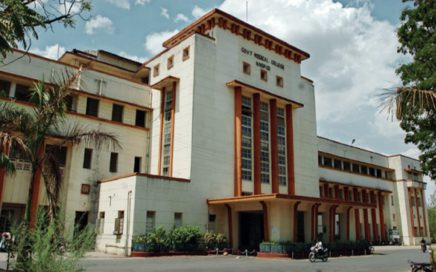Nagpur: In a groundbreaking ruling, the Nagpur Bench of the Bombay High Court has invalidated Clause D(2) of the Government Resolution dated June 27, 2017, which pertained to the ‘Utpanna Maryada’ (Income Limit) for foreign scholarships.
This landmark decision came in response to a writ petition filed by Mayur Sanghrakshit Patil, a 28-year-old student from Nagpur. Patil, hailing from the Scheduled Caste category, challenged the clause, citing its inherent unfairness and its detrimental effects on economically disadvantaged students. His petition underscored the adverse impact of income thresholds on equitable scholarship distribution.
Patil, who has been selected for studies at Duke University (USA), faced significant financial hurdles due to his family’s weak economic background and the denial of an education loan by banks. Consequently, he was deprived of his fundamental right to education. He argued that the current scheme favoured financially stable students who could afford education abroad without assistance, thereby excluding those who genuinely needed support.
With an annual family income of Rs 2,78,000, Patil fell within the lower-income bracket. His petition included information about students and their guardians’ incomes. The court observed that the data presented painted a grim picture, revealing that even students with well-off guardians had been granted scholarships, undermining the scheme’s intended purpose of aiding economically disadvantaged candidates.
The scrutiny by the court exposed a fundamental flaw in Clause D(2), which exempted students admitted to the top 100 QS World Ranking institutions from income criteria. This exemption allowed financially privileged students to benefit from scholarships earmarked for economically deprived individuals, distorting the scheme’s objectives.
Moreover, the court criticized the government’s inconsistent approach to income criteria, noting revisions prompted by factors such as the COVID-19 pandemic.
Despite discussions proposing a revision to a maximum family income of Rs 8 lakh, no formal amendment was enacted, leaving the 2017 resolution intact. The verdict stressed the necessity of preserving the scholarship’s original intent, aimed at supporting backward caste students in accessing higher education. By nullifying Clause D(2), the court aims to rectify the imbalance in scholarship distribution and uphold fairness in access to educational opportunities.
The division bench of Justice Avinash Gharote and Justice M S Jawalkar directed authorities to reassess Patil’s scholarship application within two weeks, considering the implications of the ruling.
This ruling marks a significant victory for equity and access in education, signaling a step towards rectifying systemic inequalities in scholarship distribution. It underscores the judiciary’s role in upholding the rights of marginalized communities and ensuring that educational opportunities remain accessible to all, irrespective of socio-economic backgrounds.
Adv P R Agrawal represented the petitioner while AGP N R Patil appeared for the respondents.














